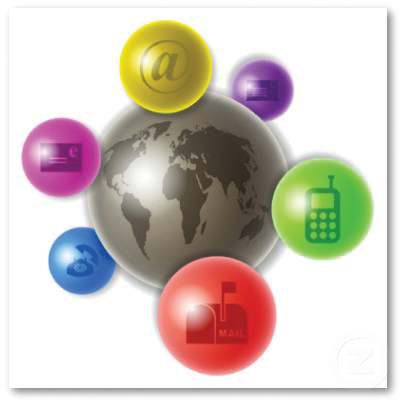Firm Management
How Cloud Communications Can Help Busy Accountants Keep a Work-Life Balance & Improve Productivity
A Work-Life Balance Feature
May. 28, 2012

In this technology charged economy, there’s been a lot of buzz around organizations utilizing hosted technologies to employ telecommuters. Whether it’s specific to the remote office worker, road warrior, consultant, or mom on maternity leave, there are major benefits to using cloud-based (hosted) solutions like Unified Communications (UC) to give a firm a distinct competitive advantage.
Keeping a Work-Life Balance
With UC, workers can balance their home-life with their work-life and still get the job done. Employees can receive emails, access documents remotely, still be available to clients and colleagues, and log in and redirect calls to their mobile or home office phone. This provides employees with a flexible working environment that fits the needs of their busy lifestyle.
Flexible Scheduling: Ideal employees may prefer to come into the office a few days a week (due to medical issues, to save on commuting costs, reduce daycare fees, etc.). Also emergency situations may arise where a parent of a sick child, for example, would have to call out unexpectedly to stay home with the child. With hosted collaboration sites such as Microsoft SharePoint, there’s no need to figure out which documents and files to bring home – all of the firm’s documents are stored in the cloud, making it available from any computer with an Internet connection. Other UC features allow voicemails to show up as emails, and with Outlook Voice Access, users can call into their mailbox and speak to an interactive voice response system to schedule a meeting, listen to voicemail or reply to emails.
New Hires: The right candidate who fits your firm’s needs and business structure might not always be nearby – that “perfect fit” may be living elsewhere. Allowing for telecommuters will allow firms to attract the best talent around. On the other side, potential candidates do not have to worry about not being offered a job because of their geographic location.
Improved Efficiency Under one Roof: Salespeople, remote workers and mobile executives can do business from any location and never miss a call or message. Even better, virtual companies can still maintain the perception of an “under one roof” image to the outside world. Customers, vendors or shareholders will be unable to recognize that employees are working remotely since inbound callers will not change their calling patterns. This means, if a client calls an employee’s office line, the call can be automatically routed to that person’s home office or cell phone – making it appear that they are still in the office, available and ready to help. Additionally, outbound calls can be made on a cell or home phone but appear on caller ID as though they are originating from the employee’s desktop phone.
Additional Benefits of UC
A cloud-based UC solution is a key investment for any organization striving to increase productivity and response time, as it improves office efficiencies and even enhances compliance in an organization. Additional benefits include:
- Business continuity: Days off from work in the event of a storm or disaster means lost productivity, lost revenue and playing a game of catch up once returning to the office. UC gives users direct access to redirect calls or relocate the entire firm in the event of a storm or disaster where employees can continue to work safely from a remote location.
- Mitigation of technology obsolescence: Immediate access to new features and functionality without costly upgrades, no maintenance fees, no costly moves, adds or changes.
- Scalability: Easily add and remove users as a firm expands or needs to downsize.
- Consolidation: No need to keep track of multiple vendors; one single vendor with one bill to pay.
- Go Green: When a customer chooses a hosted vs. premise-based phone solution for its communications, they contribute to an overall reduction in resources and costs of power and cooling by up to 84 percent. By reducing energy consumption, they reduce the carbon dioxide gas emissions produced as a byproduct of generating electricity.
- Alleviate Business Travel Costs: Business travel can be an important aspect of growing a business, but it can also tear through the company budget pretty quickly between hotel, airfare, rental car service, meals and other non-inclusives. Teleconferencing can help cut costs, but it also means sacrificing actual face time. Videoconferencing is more effective because it provides the ability to connect remote users so they can communicate “face-to-face”. This can easily save thousands on travel fees. Employees do not have to take time out of their normal work schedules, travelling to various locations for business meetings. Productivity remains strong and no downtime means no money lost.
- Out of Pocket Expense: Premises-based solutions come with a significant investment in hardware (a PBX system, phones, messaging system, etc.) equaling around $2,000 per user. However, a hosting company can deploy, manage and monitor a hosted solution in less time, for less money ($250-$350 per user) because the technology lives in the cloud.
- Additional Savings for the Organization: Having less employees in the office means the firm pays for less square footage with relation to office space, office furniture, desktops, etc. In addition, because employees see telecommuting as a benefit, firms offering telecommuting positions see fewer turnovers. Because workers will save on commuting costs (train fare, gas, tolls) they are also willing to work for lower salaries.
An effective communications network is one of the most critical pieces of a firm’s business structure. Having the ability to allow employees to work from anywhere can save a firm (and its employees) money, making them happier and more efficient.
—————-
Louis Hayner is chief sales officer at cloud-based unified communications provider, Alteva and has over 10 years of management and entrepreneurial sales experience in telecom services. He can be reached at l.hayner@wvtcg.com.
